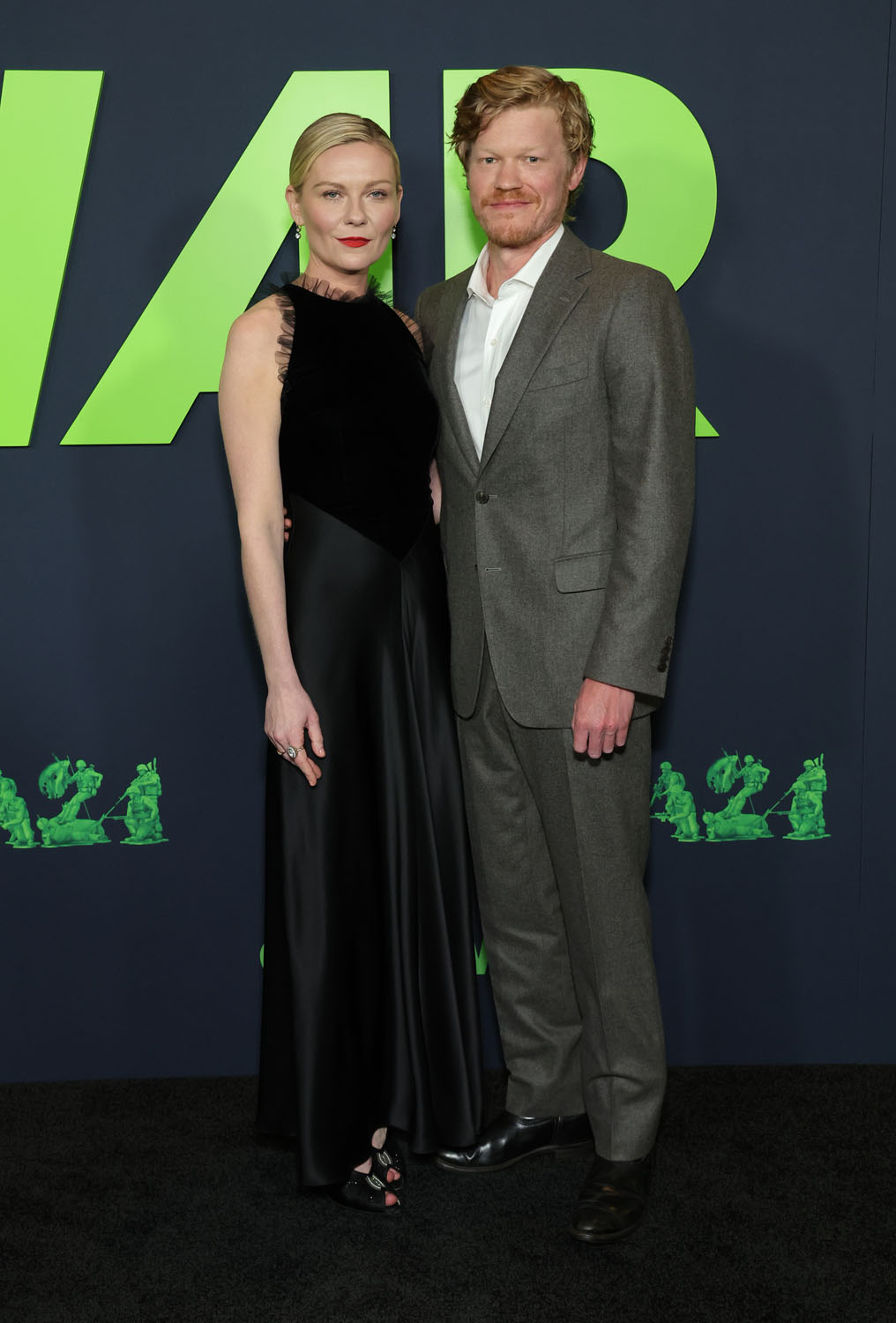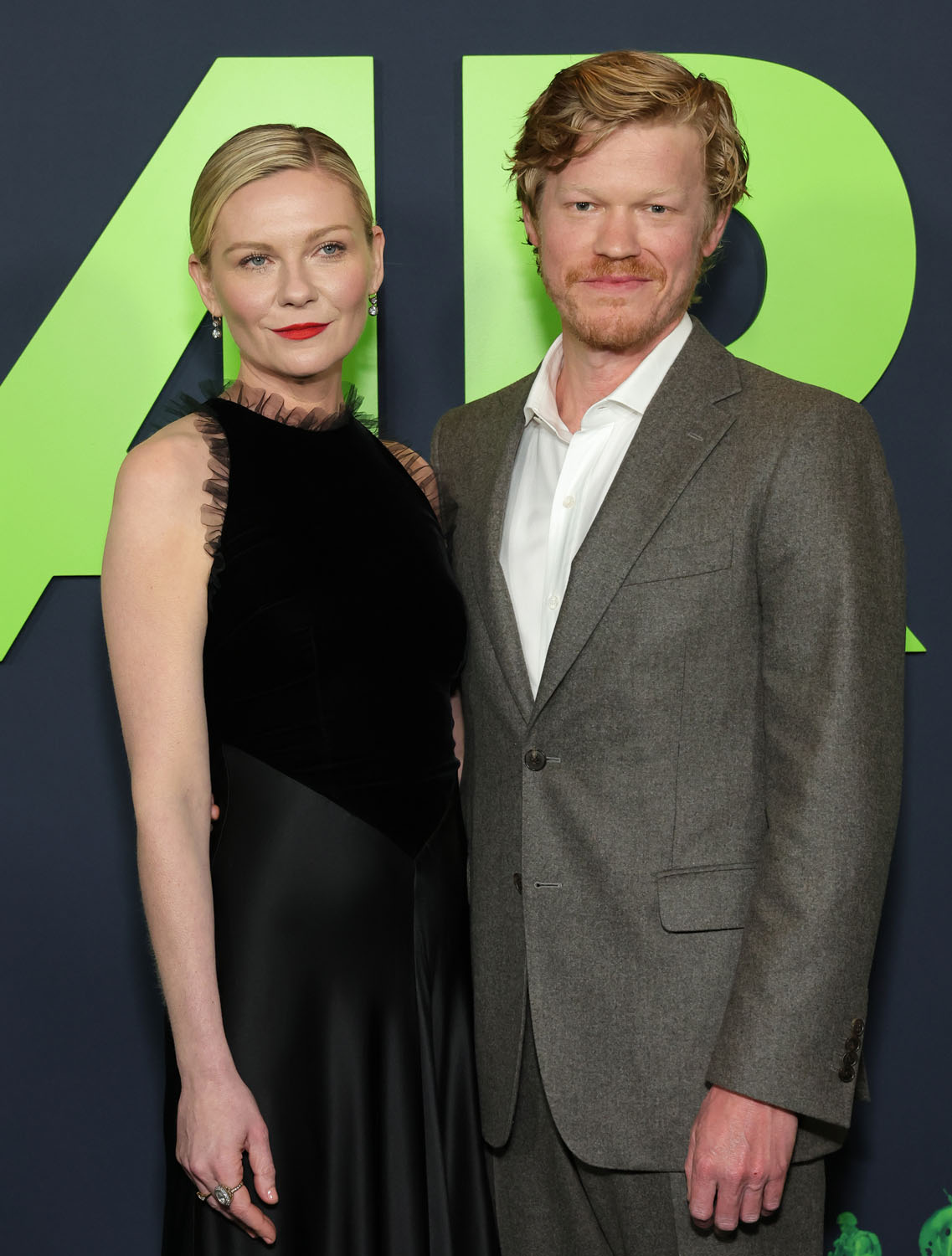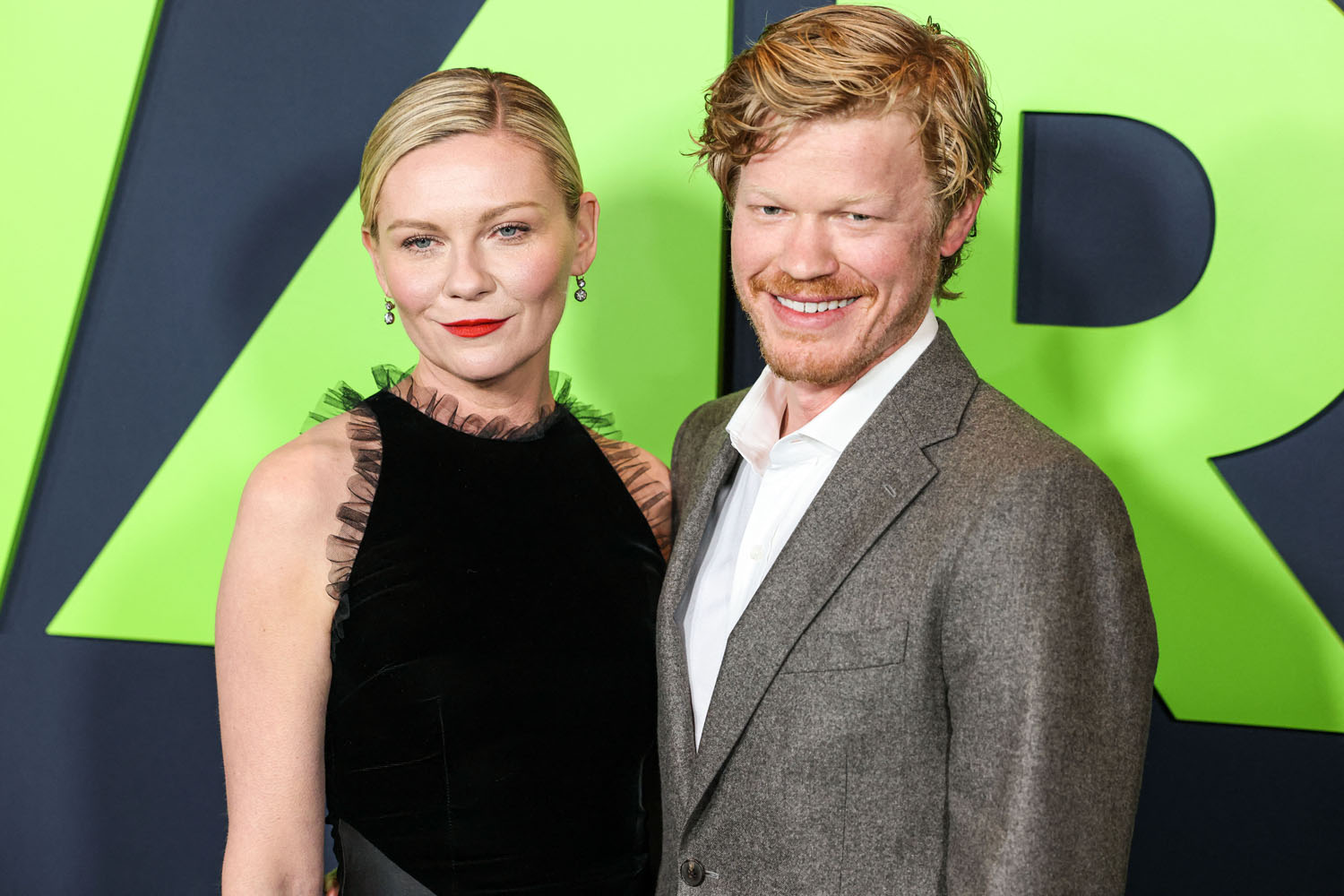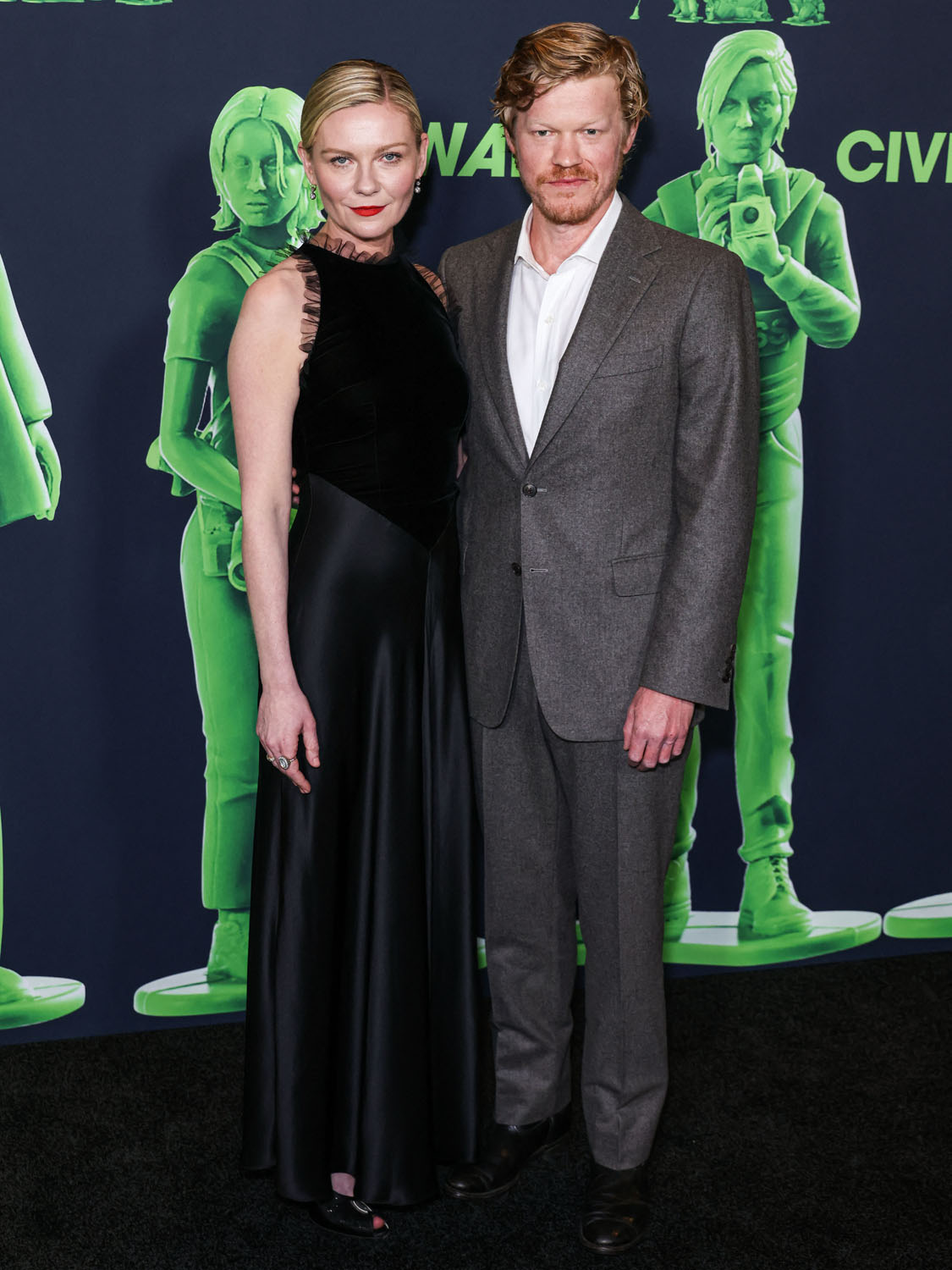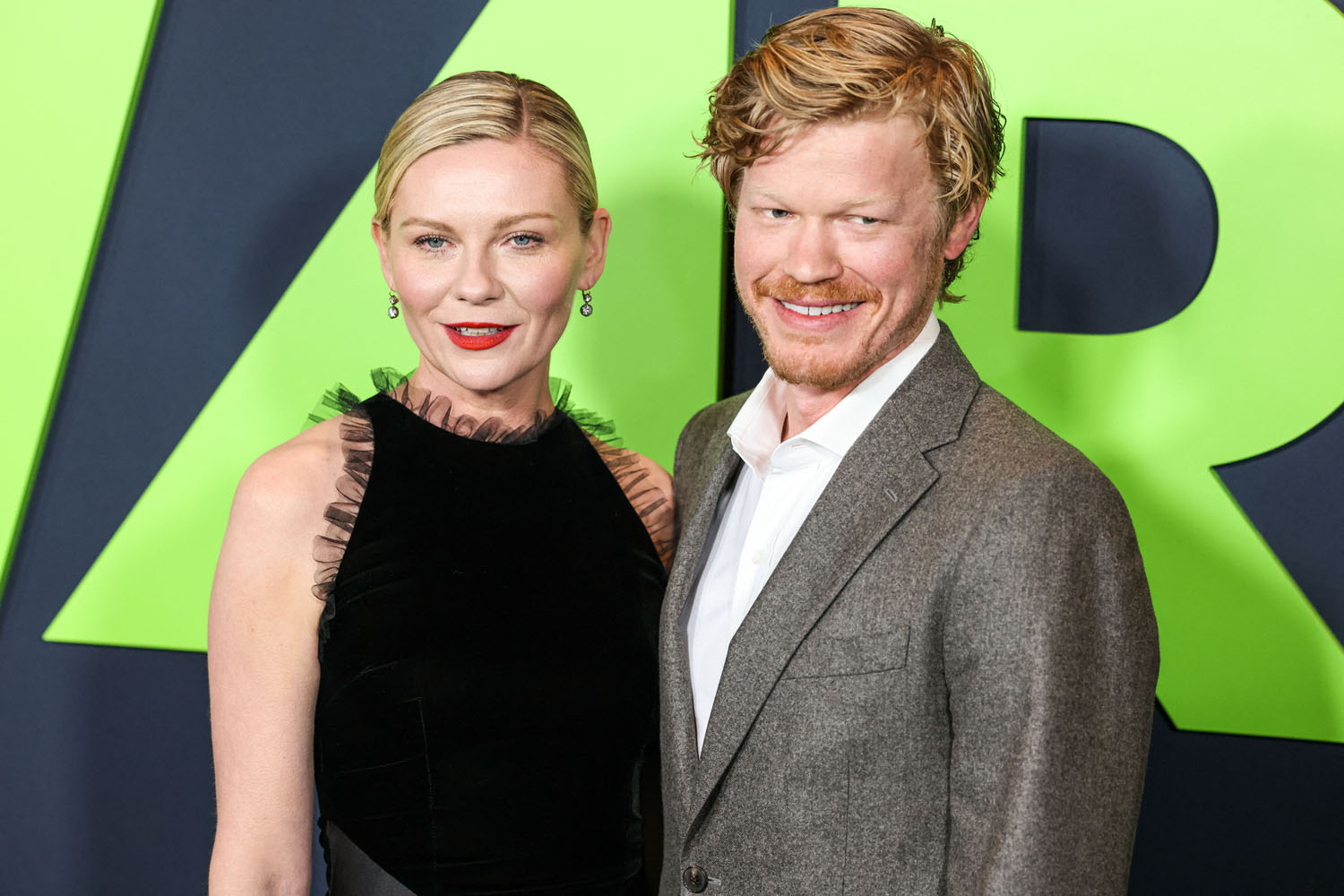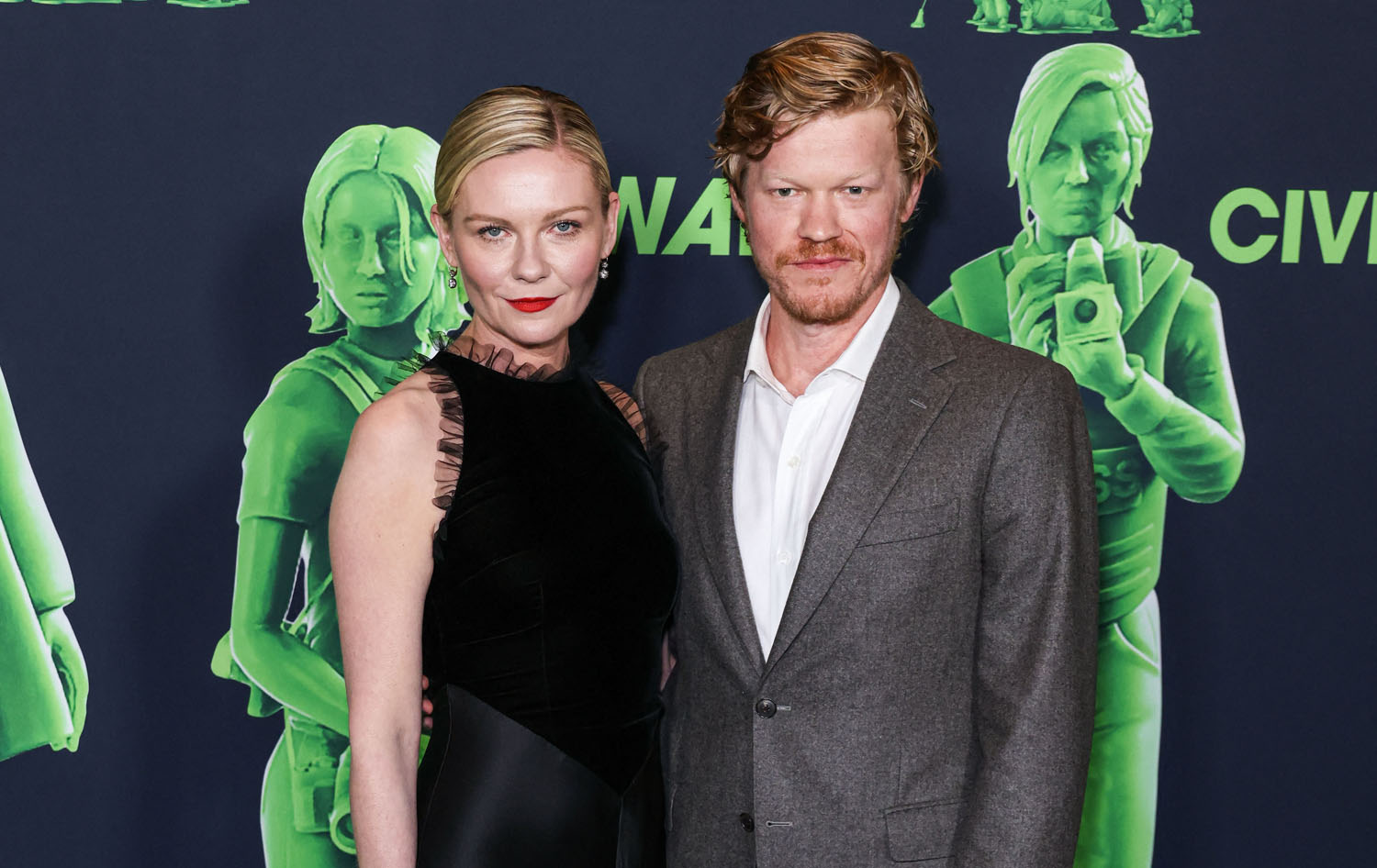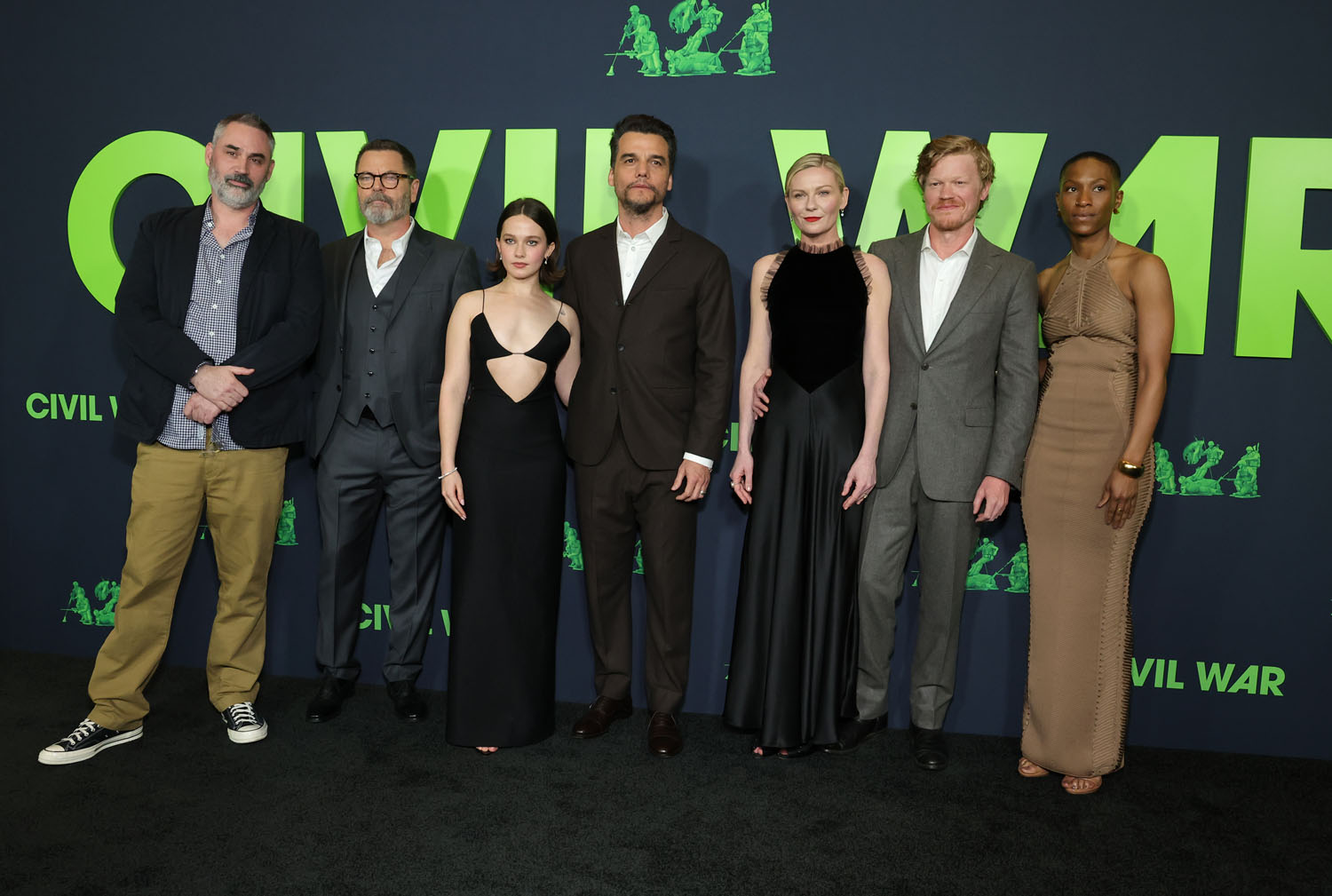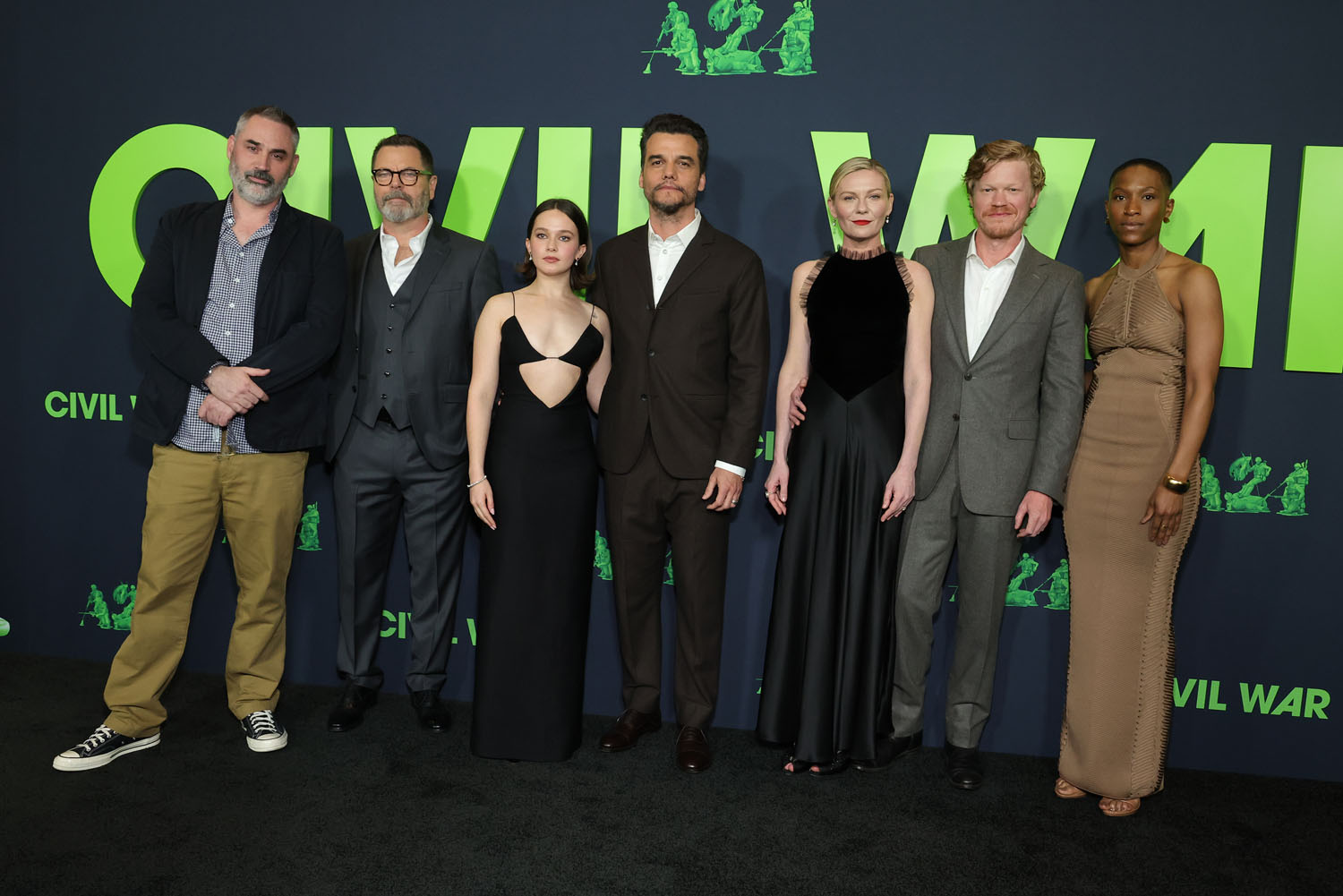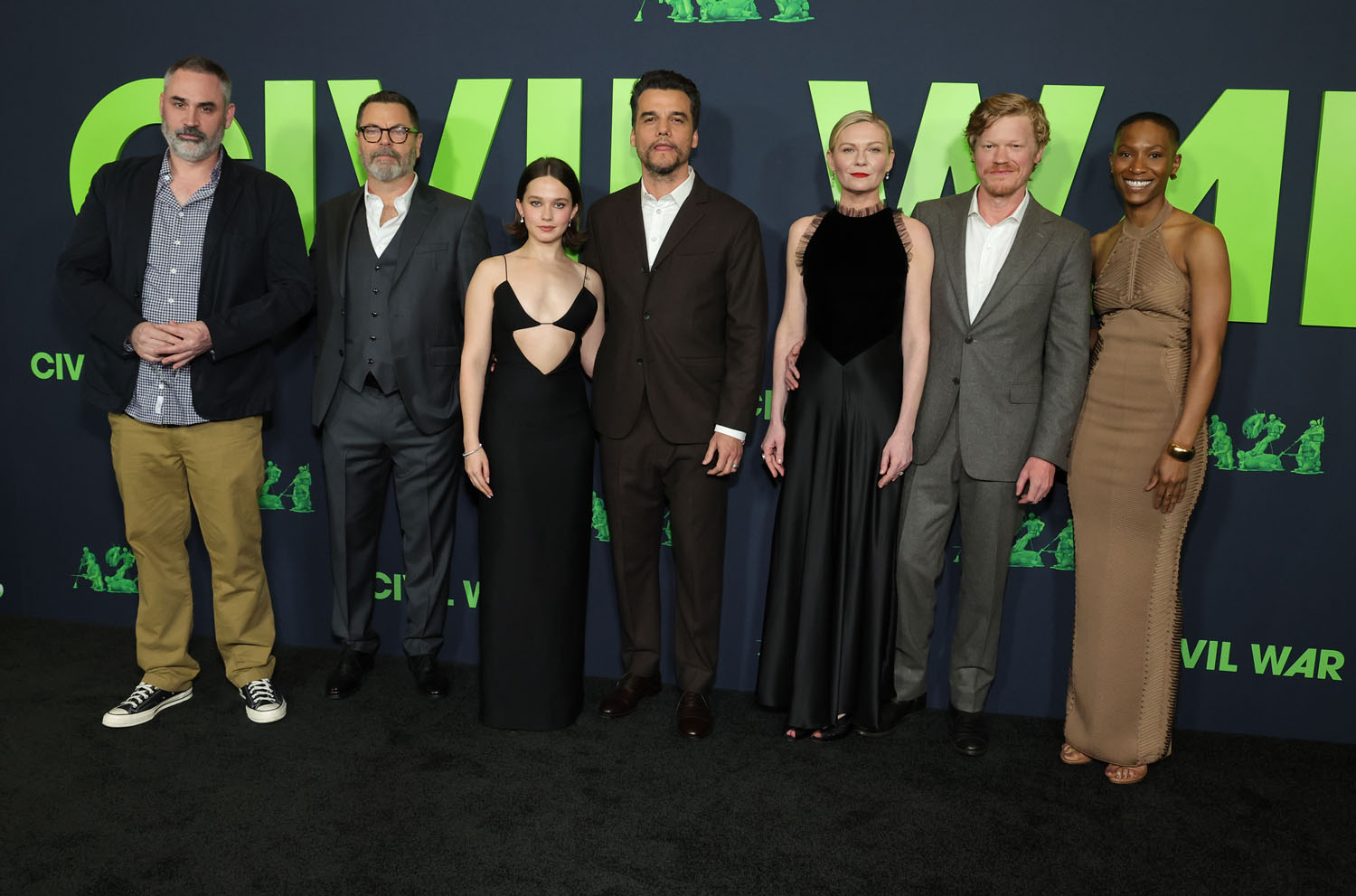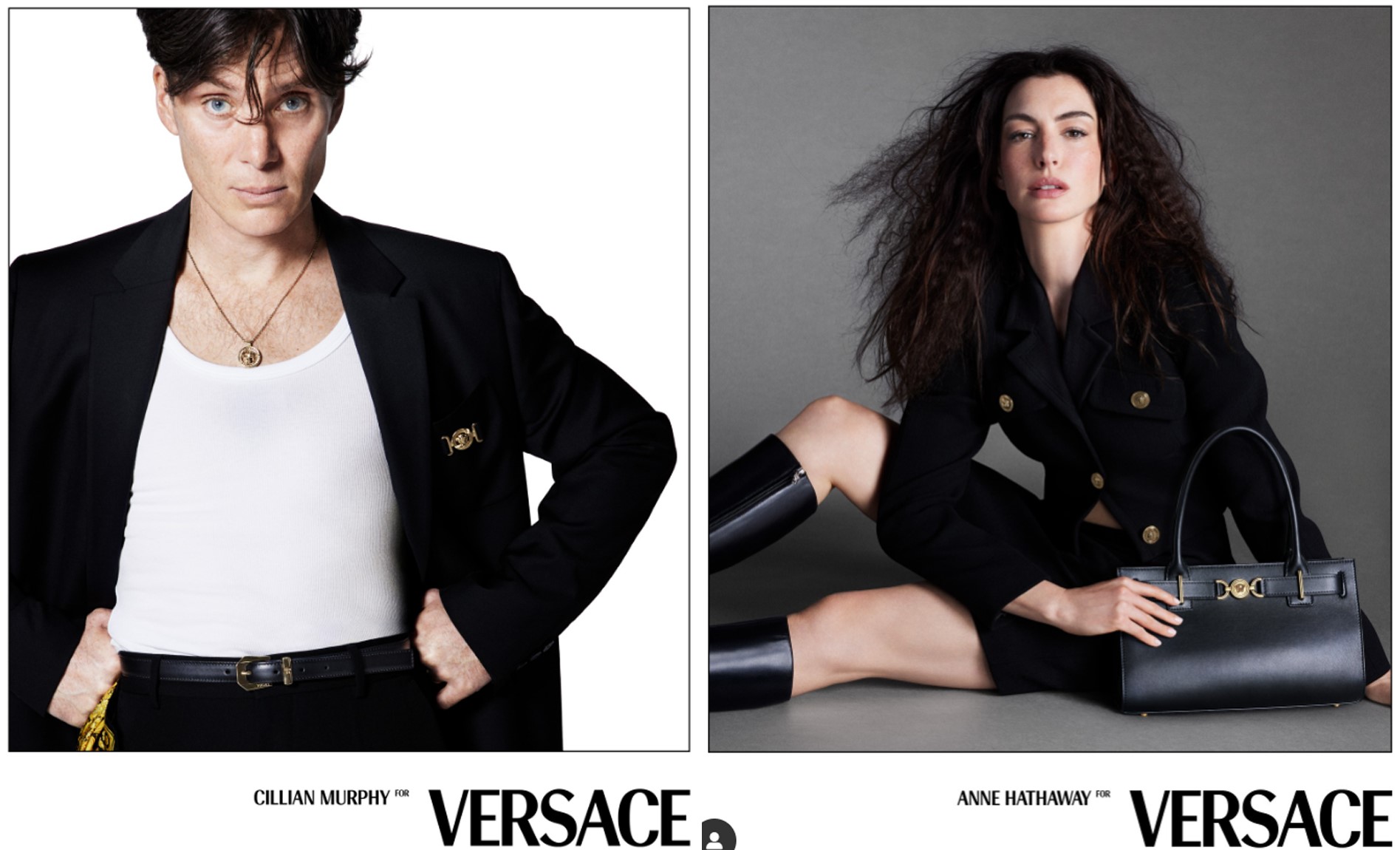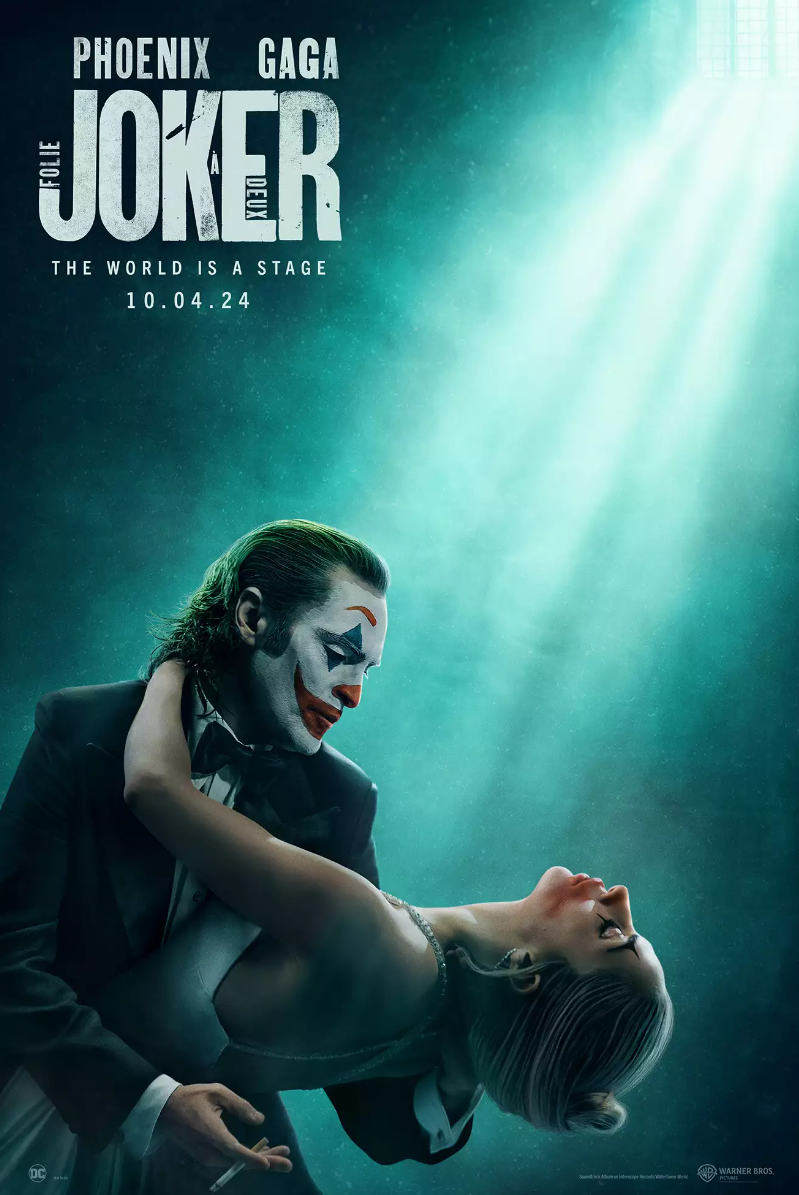Kiki and Jesse: One Movie, Two Profiles


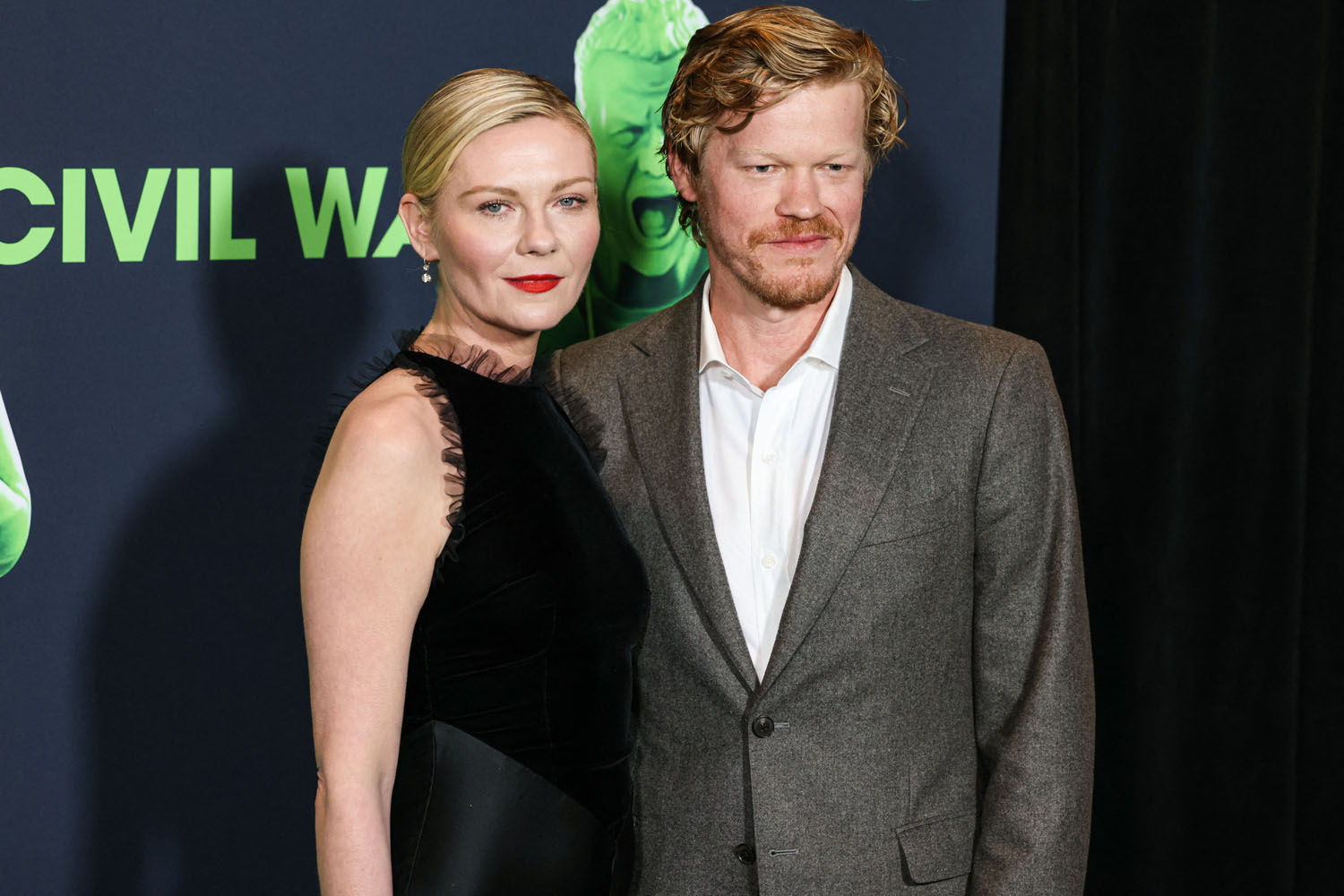
Kirsten Dunst and Jesse Plemons, Hollywood’s most low-key power couple, were at the premiere last night of their new film, Civil War. With its $50 million budget, Civil War is the most expensive film A24 has made to date and I’m saying this because I think by now we’re all aware of A24’s cult following and how extraordinary that is, for a production company to have a cult following, and also their award season track record.
Civil War is directed by Alex Garland who, arguably, has not gotten his flowers. It’s a dystopian film but… you know… considering the times we’re in, and the f-cking year we’re in, I don’t have to spell out for you that dystopia might not be that far off. And then there’s the cast: Kirsten Dunst, Wagner Moura (who was SO great in that episode of Mr & Mrs Smith with Parker Posey), Cailee Spaeny (fresh off her breakthrough performance in Sofia Coppola’s Priscilla last year), and a brief but impactful appearance by Jesse Plemons, marking the third time he and Kiki have worked together. The point is, for A24, there may be Oscar possibilities here.
We can talk more about the film when it comes out next week. For now, let’s focus on Kiki and Jesse and their joint but separate promotion. As mentioned, Jesse’s part in Civil War is small, and he wasn’t even the actor originally cast in the role – and yet, if you’ve seen the trailer, he shows up literally halfway through, and delivers the most chilling lines of the preview. It’s ten words, and then he laughs… and he is terrifying. But that’s exactly what he can do with a character, and that’s why they keep putting him in films and series, in supporting roles with such dizzying variety, he’s unrecognisable from one project to the next, even though the projects are coming at an equally dizzying speed. After Civil War, we’ll see Jesse again in Yorgos Lanthimos’s Kinds of Kindness alongside Emma Stone which, given Yorgos’s track record, might also be an Oscar contender next year, just after Poor Things.
Jesse Plemons, then, is prolific. But quietly. SO quietly! This is what I was thinking about when I was reading his cover profile in the current issue of Texas Monthly which begins with the title “How Jesse Plemons Came To Star In, Well, Pretty Much Everything”. and notes that “Plemons has now acted in seven Best Picture nominees, putting him in rarefied company, including Marlon Brando, Katharine Hepburn, and Laurence Olivier”.
Those are the names of legends who became legends in lead roles. And Jesse Plemons, though he has the talent, and clearly the respect in the industry, is not known as a lead actor. This is not the focus of the piece, and it certainly doesn’t sound like it’s his focus – but the piece itself is the kind of profile that usually is reserved for lead actors, for Movie Stars, and it actually feels like a bit of a throwback to the kind of celebrity profile that we see fewer and fewer of these days, when the reporter has meaningful access to their subject, in this case months of it, and across multiple locations, to really get a chance to live, observationally, in the skin of this person. So if you haven’t already, it’s a great read, and gives so much insight into why Jesse Plemons is at once so ubiquitous and underrated. Deep into the article there’s a bit about A.I. and how it is and will continue to change the entertainment industry, including performances. Jesse Plemons is the perfect example of the kind of artist that no computer could possibly generate and Sean O’Neal here writes about his gift of restraint, how he acts in the pauses between words and how in there is more humanity in those brief but significant moments than an algorithm will ever be able to imitate.
So, to go back to that question we’ve been circling – when will Jesse Plemons be the lead? Well, maybe he doesn’t ever want to be the lead. Given his choices so far, he truly seems to just be interested in the stories and the people who inhabit them, and not give a sh-t about who gets more screentime, who’s number one on the call sheet, whether or not that should be a defining marker of success. He’s been nominated for an Oscar, he will be likely be nominated for more. Why pursue something for the sake of what it means to Hollywood over and above what it truly means to be doing this job?
On the other side of that, there’s the performer and then there’s the audience. There’s a relationship here too and especially now, with so much digital communication and conversation about art. There are corners of the internet that do love Jesse Plemons, but there aren’t enough corners of the internet who are asking for Jesse Plemons to get to the next level. And that’s interesting space, or gap, to explore for a minute. Think of all the discourse that surrounds Barry Keoghan for example and how he’s just made the calculated jump from supporting to lead and the reaction to his levelling up in 2023. Should we, the audience, have been doing the same – for years! – about Jesse Plemons? We weren’t. And I wonder why. Beyond the fact that he didn’t seem to be seeking it out (which we might have called him thirsty for if he did and yes, Barry Keoghan is thirsty), as we have seen, the culture wants and pushes for things without asking whether or not the people they’re advocating for actually desire it anyway, shouldn’t we consider that collectively we weren’t or aren’t pushing for it for Jesse because… maybe we also undervalue actors for the sake of celebrity?
That’s the intersection Kirsten Dunst has been parked at – and Jesse Plemons has had a front row seat to it for almost a decade. Kiki has her own magazine profile to promote Civil War, multiple actually. There was some noise a few weeks ago when her feature in Marie Claire came out and her comments about not working for two years after The Power of the Dog came out because she kept getting offers to play “sad moms”. But yesterday her profile in GQ Hype was released and, well, it would seem that the whole sad mom thing was overblown and now she’s saying that:
“It’s not hard to get roles,” she says. “I just don’t want to work on things because most things aren’t very good. Let’s just call a spade a spade here.” Plemons jokes that she can’t just work with auteurs – she’s only been in films directed by Alex Garland, Jane Campion and Sofia Coppola in the last seven years – but Dunst isn’t sure she agrees. She doesn’t need to work. “I’ve been working since I was three. Most people who have worked this long are retired. I deserve to be picky.”
So it’s a combination then of there not being enough good roles out there and the fact that she’s selective and, really, that’s not unique to Kirsten Dunst. Almost every actor these days is talking about studio reluctance to make mid-budget character-driven dramas and are playing it overly safe and unimaginatively with big budget tentpoles. But Kiki isn’t as bothered about it as the discourse made it sound like she was. And what emerges from this profile is that one of the reasons she’s not all that bothered by it is because she’s not that invested in the machinery of Hollywood. Which, for someone who grew up in Hollywood as a child star, is one of the keys to her longevity.
Kirsten Dunst is now 41 years old, she’s been at this a long time. She was famous early, she’s been famous forever, but unlike so many of her contemporaries who started around the same time, she figured out how not to let fame arrest her at the age where it arrived. Sure, we might still remember her as that girl in Bring It On but we also no longer see her as a teenager, we engage with Kiki as an adult. Which is that much more interesting to me considering what she says in the GQ Hype interview about Sofia Coppola.
It comes up when she’s talking about working on Spider-Man and how the studio suggested that she fix her teeth and didn’t like what she wore to the premiere. She was 17-years-old when she was cast in the first Spidey movie with Tobey Maguire, and imagine being that age and having these powerful industry executives try and tell you about your looks. It happens over and over again and the effect it has on young women can be devastating. But that’s not how it went for Kirsten – she resisted their pressure, and she credits that in part to Sofia:
“Dunst credits her resilience in the face of this scrutiny in part to her relationship with Sofia Coppola, who cast her in The Virgin Suicides in the late ’90s. “I had Sofia [Coppola] at 16, who thought I was so cool and pretty when I didn’t. She was like, ‘I love your teeth!’”
It had a major impact on her, to have an older sister figure looking out for her whom she looked up to, and who could tell her, ‘You’re perfect as you are’. It helped her to ignore all of the other noise. “I didn’t realise at the time,” says Dunst. “I realised it [later] in decisions I had made. Not to change teeth, not to blow up my lips, or whatever it is that everyone wants to look like.”
“I had Sofia at 16”…
That, right there, is gender equality. This is why we advocate for more women in leadership roles because this is the result of that kind of mentorship. And that, by the way, might be why Kiki has been able to “grow up” famous and not remain stunted in adolescent forever fame like so many others. But there’s another layer to that when you consider Sofia’s body of work, which Sarah calls “the Cinema of Girlhood” and “the ways in which the world seeks to use young women”. In her films, on camera, Sofia interrogates our society’s obsession with and demands of girlhood, which is its own form of control. And off camera, Sofia’s influence is such that one of her muses, perhaps her most well-known muse, was able to exercise agency over her personal and professional identity and live a life remarkably different from the characters she played under Sofia’s direction. It’s an exhilarating reveal.
Although, of course, it does have its limits. While Kirsten has been able to navigate herself around some of the most notoriously sh-tty experiences of early fame, no amount of mentorship from any woman in the industry or any industry could have protected her from pay inequality. And on this and previous press tours she has talked about that (via The Guardian):
“I definitely grew up in a time of major pay disparity between the lead actor and myself.” Dunst was cast opposite Tobey Maguire in the Sam Raimi directed Spider-Man aged 17.
She added: “Even though I had been in Bring It On and he hadn’t … I had more success in my box office than he did. I was 17, I was still learning, at that age I’m still learning my taste in film, I didn’t even think to ask. I didn’t even know there was a place to challenge it. That’s how it is at 17.”
Dunst previously commented on the same issue, telling the Independent in 2021: “The pay disparity between me and Spider-Man was very extreme. I didn’t even think about it. I was just like, ‘Oh yeah, Tobey [Maguire] is playing Spider-Man.’ But you know who was on the cover of the second Spider-Man poster? … Spider-Man and ME.”
Adjacent to this, she spoke to GQ about opportunities beyond pay – and this is related to what I wrote yesterday in my Hunter Schafer post, about how young female stars now are “flexing their cultural capital and shaping their careers differently from the young women who have been in similar positions even a decade ago”. This is what Kirsten is referring to when she tells GQ Hype that:
“I wish I would have been a producer on Bring It On, you know?” says Dunst. There she was taking a risk as an actress, bringing some needle-moving star power to a movie, and yet there were no conversations about her taking on that role – it just wasn’t a thing. “Nobody even thought to ask for that, and it was a huge success. And then I would have been a producer on all the other ones they made after that.” (The movie’s success led to six direct-to-video sequels, none of which featured any of the original cast.) “But I didn’t – it’s not like I’m getting anything from it.”
It really wasn’t a thing… then. It is now, and the younger generation of female creatives is seizing upon it, and it does represent change. But it’s also a pretty fresh reminder that we are in the infancy of this era, given that someone like Kirsten Dunst, at 41, just missed out on it.
But this isn’t necessarily a lament and it shouldn’t be headlined as one. Because Kirsten Dunst isn’t lacking for opportunity. As Jesse has noted, she works with auteur directors, only, and she might just be adding Justine Triet to that list after their cigarette at the Oscars. Also she and Jesse will be producing together, eventually, and extending that streak of projects that they’ve already established….though not to be the point of relentless ambition.
“I don’t have the drive to be on the phone all day,” she says. “This industry, it’s not a good industry. I’m just happy being with the people I love.”
Is it really about drive though? Going back to Jesse, ambition doesn’t have to look the same as it has in Hollywood where actors follow a prescribed path to “success”. Jesse Plemons, as just mentioned, does not necessarily have “leading man” success, but he probably gets more offers to work in more prestige projects than most so-called leading actors. And Kirsten Dunst, well, Kirsten Dunst at this point is already an icon who has worked in every genre of film and isn’t trying to start her own brand of candles and bath products. It’s a different kind of power, but power all the same.
We're Squawking about this today! (app link here)

